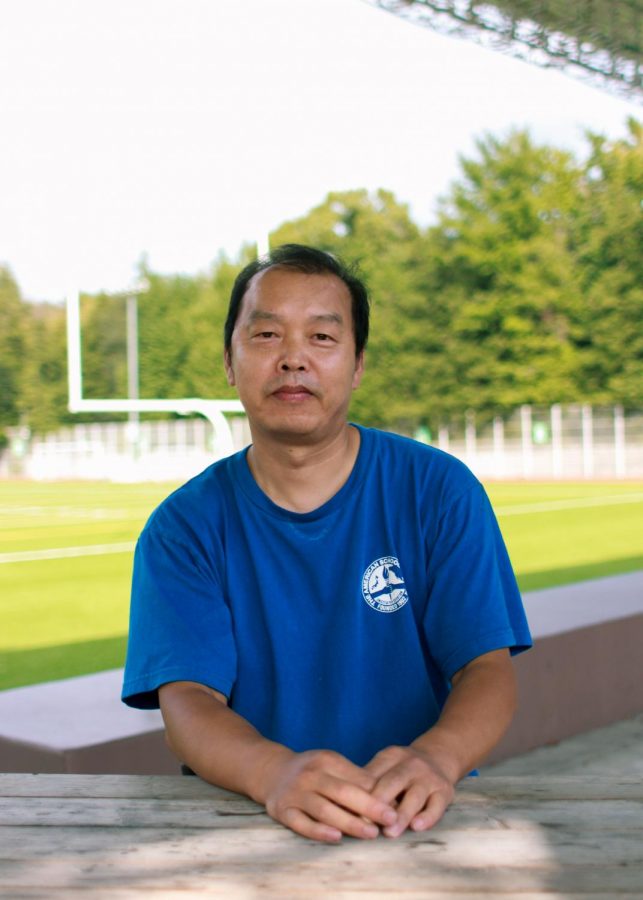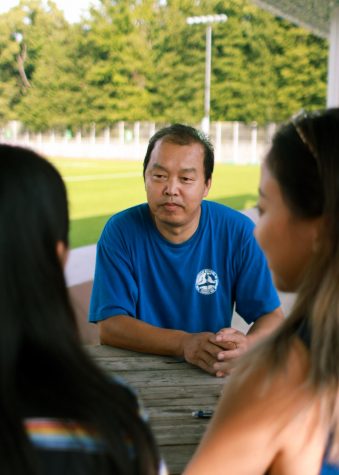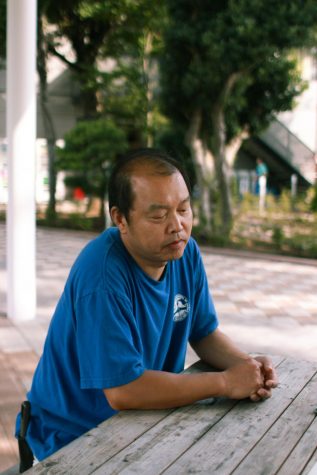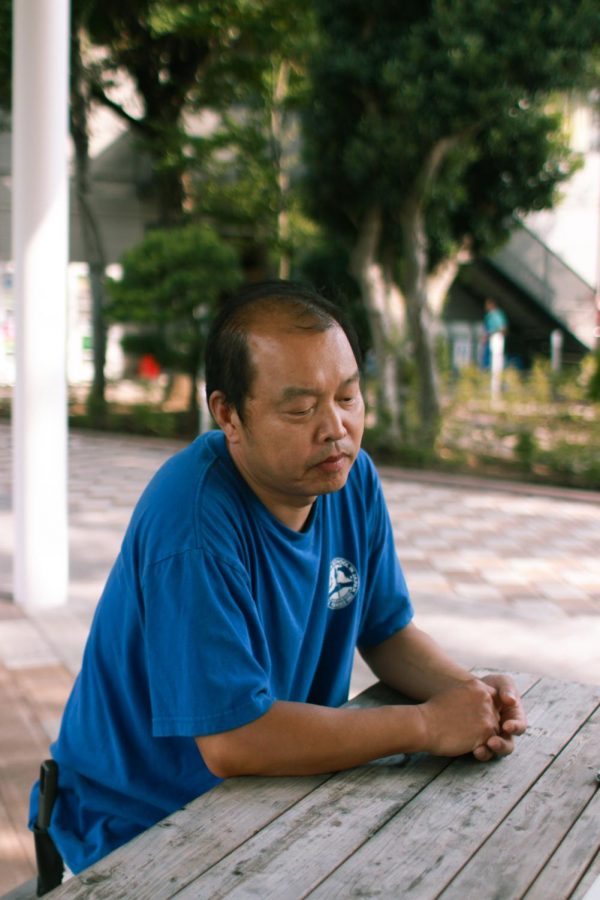Photo by Fiona Lee
Interview with May-San
The last person we interviewed is known by his Japanese name, May-San. His Chinese name, Sengu Minghe, means “a clear river in the forest valley.” Also from Heilongjiang, he has been at ASIJ since 2006.

[After explanation of interview process] Do you have any questions so far?
Well, no questions, but I especially appreciate and admire people who make the effort to learn Chinese. I think language is very important. When you enter society in the future, it’s like having one more weapon in your war chest. Without learning Chinese, we wouldn’t be able to have this conversation! I come from China, and when I first came to Japan, it was so inconvenient not being able to speak the language. That made me realize the importance of language.
Why did you first come to Japan?
My mother is Japanese, but because of the Sino-Japanese war history, after the war, my grandmother and mother stayed in China. In the 1970s, my mother came back to Japan, and in the 1990s, we followed her under the War Orphan Repatriation Act.
Before you came here, what did you do?
Before I came here I was a middle school teacher. I taught math.
Do you miss teaching?
Very much. I really love school, and students. Watching you young people, full of promise and energy makes me really want to teach.
How long have you been working at ASIJ?
I began here 12 years ago.
Do you think that the school has changed for the better since you came?
Yes, a lot. The facilities and environment have all improved. Since I was a teacher in China, I’ve noticed that the quality of students here is very high. Comparatively speaking, since I’ve seen both countries.

What do you enjoy doing during your free time?
I like to read novels and go hiking in the mountains. I also listen to music and get housework done.
Is your family here?
Yes, my family is all here. I have a son, he’s 27. When we came to Japan, he was already four years old. I only have one because of the One Child Policy. If we had another child, we risked losing our jobs and having to pay a large fine. The fine is secondary, but losing your job is very scary.
How many times a year do you return home? Do you miss your family?
I only go once every several years. My parents are here, and my brother too. I don’t have any particularly close relatives left in China. I do miss it. After all, I am from China, I still an affinity for China. Mostly the food.
What hopes/expectations do you have for your son?
Regarding his education, since I came to Japan I’ve realized the importance of language. So I especially tried to nurture his language capabilities in Japanese, Chinese, and English. When he was in middle school, I sent him back to China to study. I sent him to Canada for high school. That way, his English, Chinese, and Japanese are all fluent. Now, the company he works at is Rakuten. Have you heard of it? He’s able to operate fluidly in all three languages at work.
What do you think the most difficult thing is about living in Japan? How does it compare to your hometown?
The climate here is better; Heilongjiang is very cold. The people here are more cultured and sophisticated. It’s safe and clean here, too. Of course there is also a huge difference in culture. Luckily, since I already know kanji, I have an advantage compared to say, Americans, when learning Japanese.

How do you think the students here at ASIJ compare to the Chinese students you went to school with?
Very different. In China, because of the One Child Policy, they’re all under a lot of pressure as the only child. I think China is a bit lacking in teaching the kids ethics and manners. Their use of language is more coarse, too.
If we were your children, what would you like to tell us?
Again, I would tell you that you must learn languages well. As much as possible, learn more languages. Some of the biggest countries in the world are English-speaking. And, if you know Chinese, you can operate in China, Hong Kong, Taiwan, and Singapore. With these two languages, you can span over half the world.
When you were a student, what was your favorite subject?
My favorite subjects were Chinese and physics. My worst subject was English. If my English was any better I may not have become a math teacher. It’s a long story, but when I took the Gaokao (college entrance examination), because my English was so bad, I could not get in to a 4-year college, I had to pick a 3-year specialized field.
Thank you for speaking with us!
My pleasure! I hope if you see us in the future, you can talk to us in Chinese. That’s my wish.
